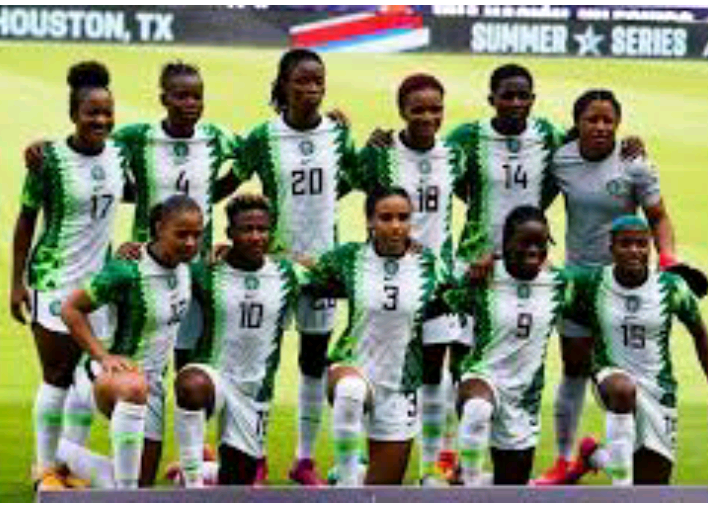Right from the onset in 1991, the Super Falcons have remained top performers at CAF Women’s African Cup of Nations (WAFCON). Some football experts insist however, that the Super Falcons need to brace up – as other African teams are becoming more determined. The three losses of the Super Falcons (including the recent one of 2022) are clear indicators.
The Super Falcons have managed to dominate African women’s football since 1991. But how can they retain their glory, and not lose it cheaply in the years to come? Can their zeal alone propel them further? We may just attempt to answer those questions in this article. Join us to unravel how Nigeria women’s football team, the Super Falcons, are dominating Africa at CAF’s WAFCON tournament. That is – with the hope that they will not fall away.
Nigeria’s Super Falcons: A History of Top Performance in Africa
Though Nigeria joined the Confederation of African Football (CAF) in 1960, the nation’s women’s team began competitive football in 1990. The first Women’s Africa Cup of Nations was played in 1991. And Nigeria’s Super Falcons reportedly won the first seven editions of WAFCON.
Nigeria’s Super Falcons won their 11th WAFCON victory in 2018 – making a total of 11 out of 14 wins since the tournament began. They have lost twice to Equatorial Guinea (2008, 2014) and now to South Africa in July 2022 at Morocco.
Nigeria’s Super Falcons on The FIFA Global Scoreboard
Again from 2003 till now, Nigeria’s Super Falcons have retained the highest position on the FIFA Women’s World Rankings – out of all African nations. Nigeria ranked as high as 23rd in the FIFA Women’s World Rankings in 2003. Nigeria currently ranks 45th overall (in 2023). That is the lowest rank Nigeria has ever achieved on the women’s football global scoreboard. Not a surprising development though, in the face of well-known economic and other challenges back home.
Nigeria’s Super Falcons – How Africa’s Flag Bearer at FIFA Women’s World Cup are Faring
Football analysts are quick to point out the serious gap between men’s and women’s competitive football in Africa. Whereas the men’s AFCON tournaments have been heated survival-of-the-fittest tournaments where only the best truly come forth. African Women’s tournaments, on the other hand, have not been as challenging as expected. But the game may just be getting some unexpected energy right now. Things are changing in the African women’s football court.
To say the Super Falcons are not yet heroes of FIFA is an understatement. The Super Falcons have represented Africa as flag bearers at the FIFA Women’s World Cup tournaments – more than any other African nation. The furthest Nigeria’s Super Falcons have ever gone in the FIFA Women’s World Cup was up to quarter-finals stage in 2003. That was two decades ago. It does not appear as if Nigeria’s football regulatory authorities have taken the Super Falcons’ weak performance at FIFA seriously.
Nigeria’s Super Falcons and Their Challenges
It is quite obvious that not enough attention has been given to the development of African women football teams. The unavoidable result is a poor show on the global football scene. However, the victory of South Africa’s Bayana Bayana at the WAFCON 2022 tournament should not be swept under the carpet. The world stage might soon be tipped in Africa’s favour – who knows? But where will Nigeria stand eventually? Nigeria should beware.
The Super Falcons engaged foreigner, Randy Waldrum as national coach in 2020. An intriguing fact is that Waldrum is presently at loggerheads with the Nigerian Football Federation (NFF) for the latter’s lack of adequate support. Waldrum complained about the poor preparations of team members for the 2023 FIFA Women’s World Cup. A proposed 10 to 12 days camp in Nigeria, planned ahead of the 2023 FIFA Women’s World Cup, was canceled by the NFF. The Nigerian football supervisory body insisted it would be a waste of resources.
Super Falcons midfielder, Ngozi Okobi, was also left out of the squad for the upcoming 2023 FIFA tournament. The player lashed out at Waldrum, saying that Nigerian coaches would be better at handling the Super Falcons than he ever did.
The head coach also complained about his seven months unpaid salaries by the NFF. In addition, some Super Falcons players were owed match bonuses for up to two years by the NFF. Waldrum equally challenged the NFF to account for the 960,000 US Dollars paid to the Nigerian football body by FIFA. The money was intended to prepare the Super Falcons ahead of the 2023 World Cup Championships.
It is clear that Nigeria’s women’s team have not actually received as much support as is expected. Even more annoying is the fact that the Super Falcons have not received as much support as their male counterparts from the onset. Unless that would change henceforth.
One thing was clear in the 2018 WAFCON tournament. The Super Falcons barely won their 11th WAFCON victory in 2018. It was a narrow escape from defeat by South Africa (finals) and Cameron (semi-finals). And they reportedly won through penalties. This time, South Africa’s women’s team, Bayana Bayana displayed more confidence in their 2022 win over their host, Morocco. Thus beating Nigeria to fourth place after Zambia – no medals for Nigeria.
Any Interventions for Nigeria’s Super Falcons?
For the Super Falcons to continue to retain their African title is no game of magic. The NFF clearly needs to be more responsible towards the Nigerian women’s national team. The Super Falcons should not be treated as merely Nigeria’s flag bearers at Africa and FIFA women competitions, without adequate backing. The necessary well-grounded planning, training, encouragement and financial support is critical, and must be provided henceforth by the NFF. And the Nigerian government needs to call every stakeholder in Nigeria women’s football to order. Otherwise – the consequences of ignoring the welfare of Nigeria’s Super Falcons will be better imagined than seen. We definitely do not pray for such to happen.
